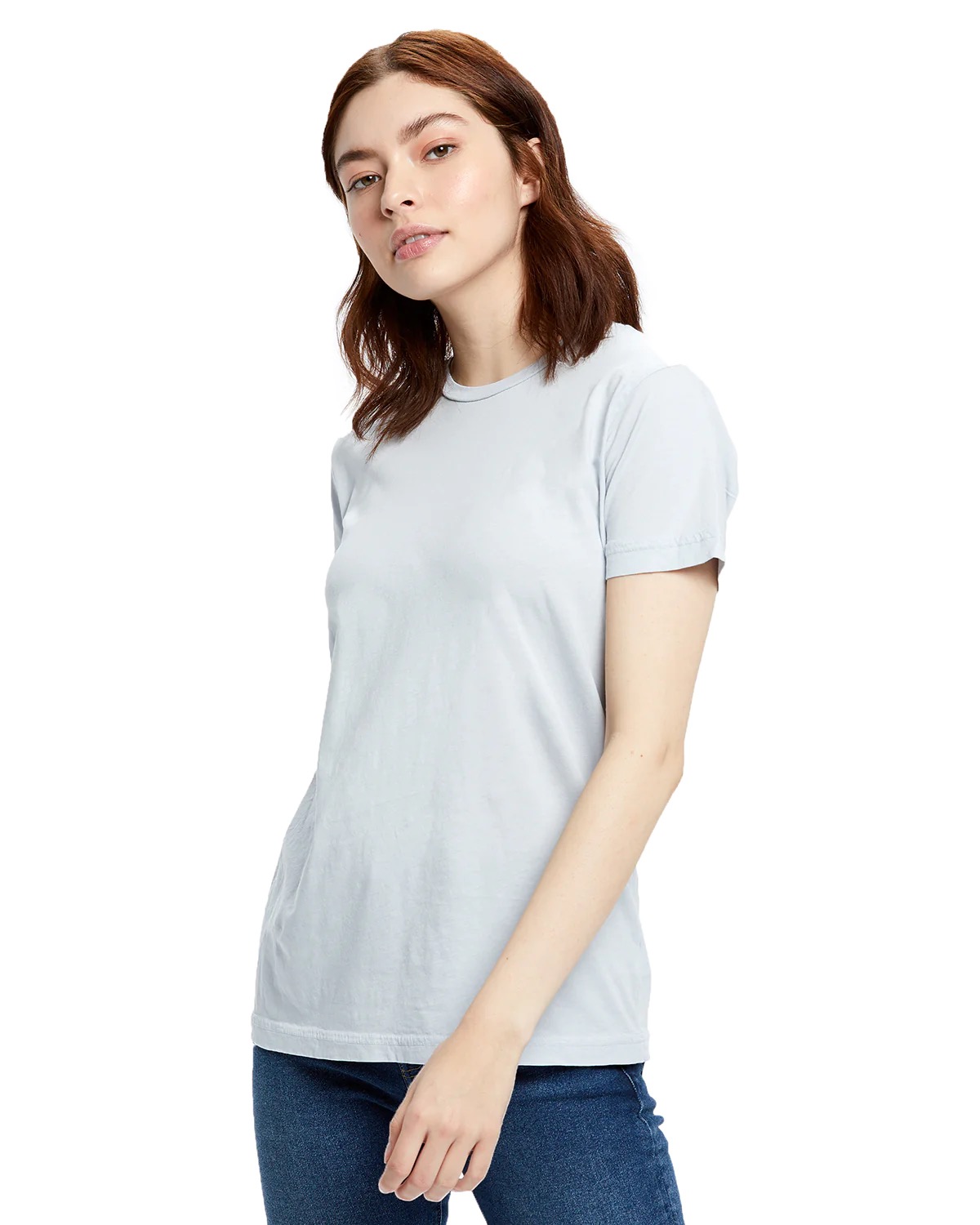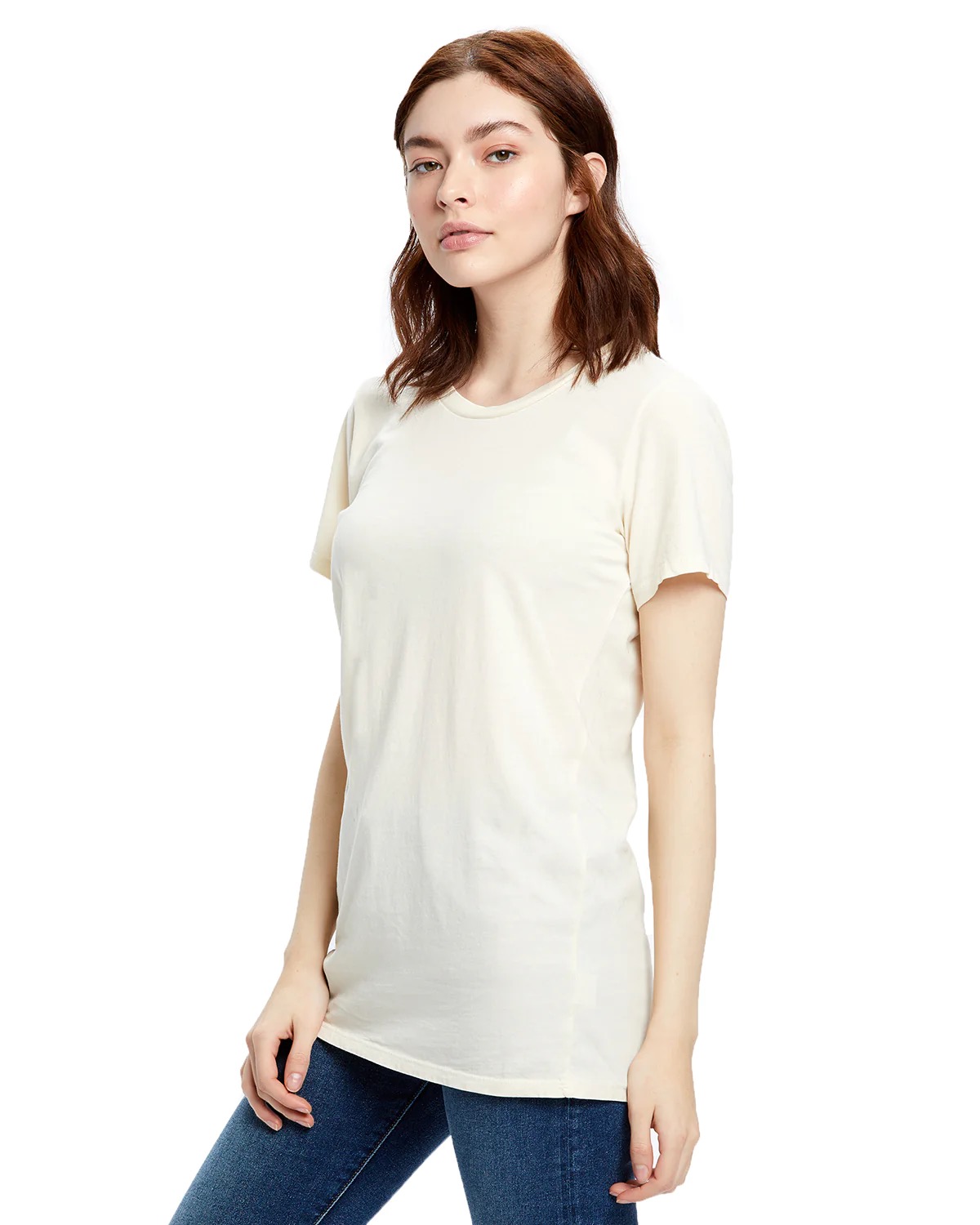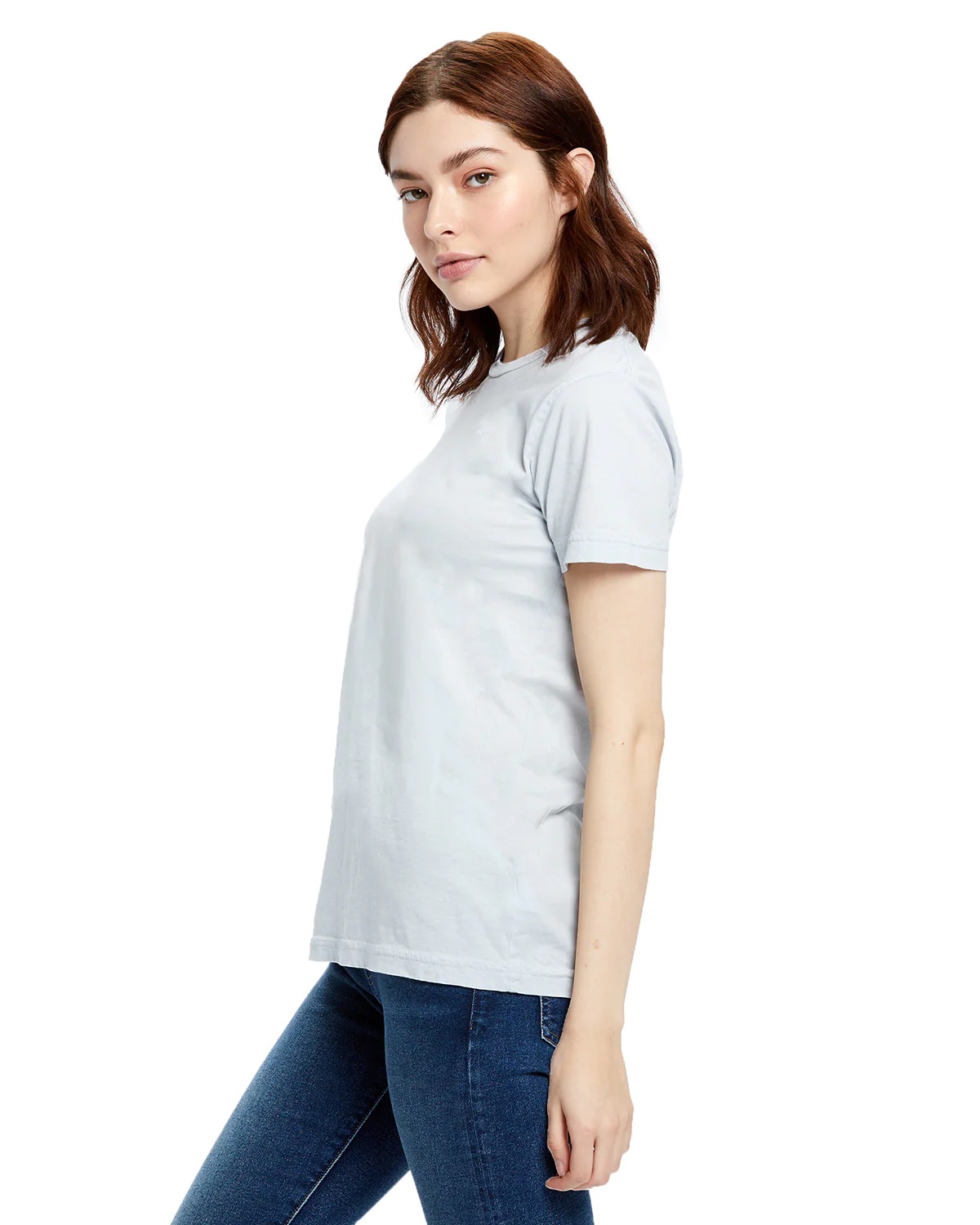
-- ORDERS MAY ARRIVE AFTER CHRISTMAS, INCLUDING EXPEDITED SHIPMENTS --
Women's - JUNIOR FIT
This item runs small. We recommend comparing a garment you love to the flat garment measurements below.
![]()
![]()
| Flat Garment Measurements | |||||
|---|---|---|---|---|---|
| S | M | L | XL | 2X | |
| Width | 16.625 | 17.625 | 18.625 | 19.625 | 20.625 |
| Length | 26 | 27 | 28 | 29 | 30 |

Cream

Dusty Blue

Vintage Black
"30 Singles" is a term used to describe the yarn count of cotton fibers. It refers to the number of times a bundle of fibers (called a "hank") has been twisted to make a single strand of yarn.
Specifically, "30 Singles" means that 30 hanks of cotton fibers have been twisted together to make one strand of yarn. This indicates that the yarn is finer and more tightly woven than yarn with a lower Singles number.
In general, the higher the Singles number, the finer and smoother the fabric will feel. Fabrics made from higher Singles count yarns also tend to be more lightweight and breathable, which makes them ideal for warm weather clothing.
In the case of the product description provided earlier, the use of 30 Singles means that the cotton fibers used in the fabric have been twisted 30 times to create a fine and smooth texture, which enhances the softness and comfort of the garment.

Cream
Cream is Garment Dyed




Vintage Black
Vintage Black is Garment Dyed
New for 2023 DUSTY BLUE
Dusty Blue is Garment Dyed




Black

Organic cotton refers to cotton that is grown and produced using organic farming methods. Unlike conventional cotton, which is typically grown using synthetic pesticides, fertilizers, and genetically modified organisms (GMOs), organic cotton is cultivated in a more sustainable and environmentally friendly manner. Here are the key aspects that make cotton organic:
Cultivation Practices: Organic cotton is grown using organic farming techniques that prioritize soil health, biodiversity, and the minimization of environmental impact. These practices include the use of natural fertilizers, compost, and crop rotation to maintain soil fertility and reduce soil erosion.
Prohibition of Synthetic Chemicals: Organic cotton farming strictly prohibits the use of synthetic pesticides, herbicides, and insecticides. Instead, farmers rely on natural pest control methods, such as beneficial insects, trap crops, and physical removal of pests.
Non-GMO Seeds: Organic cotton is cultivated from non-genetically modified seeds. Genetically modified organisms are not allowed in the production of organic cotton, ensuring the preservation of natural genetic diversity and preventing potential ecological risks.
Water Conservation: Organic cotton farming emphasizes efficient water management practices, aiming to minimize water usage and promote sustainable water resources. Techniques such as drip irrigation and rainwater harvesting are commonly employed to reduce water consumption.
Social and Fair Trade Considerations: Organic cotton production often adheres to social and fair trade standards, ensuring safe working conditions, fair wages, and fair trade practices for farmers and workers involved in the cultivation and processing of the cotton.
By following these organic practices, the production of organic cotton aims to minimize environmental impact, reduce exposure to harmful chemicals, promote biodiversity, and support sustainable livelihoods for farmers and workers. Organic cotton is often certified by reputable organizations that verify compliance with these organic standards, providing consumers with assurance of the product's authenticity and sustainability. Choosing organic cotton contributes to a more sustainable and environmentally responsible textile industry.
100% Cotton at CottonMill